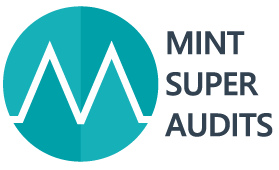Like with any superannuation fund, self-managed superannuation fund (SMSF) trustees are responsible for ensuring that they meet all legal taxation requirements at the end of the financial year.
But with an SMSF, navigating tax time can be a little more complicated, as trustees have greater control over taxation matters, and often, more investments and assets are involved. So how can you make sure that you’re approaching tax time with a clear plan and a strong understanding of what’s required? Read on to learn more about lodging your SMSF annual return.

Table of Contents
Who Needs to Lodge an SMSF Annual Return?
The short answer is everyone! All SMSF trustees must lodge an annual tax return at the end of the financial year, even if their super fund does not have tax liability or is new with no financial transactions recorded.
If your SMSF was active at the end of last financial year or was wound up over the course of last financial year, you are legally required to lodge an SMSF annual return with Australian Taxation Office (ATO).
As an SMSF trustee, you’ll need to lodge your return using the Self-Managed Superannuation Annual Return pathway, not the Fund Income Tax Return used by members of other fund types.
What are the Sections of the SMSF Annual Return?
To lodge your annual tax return, you must answer all mandatory questions and all questions relating to your SMSF. In total, SMSF trustees are expected to complete at least six sections (A, C, D, F and/or G, H, and K) of the SMSF annual return, completing additional sections if they are relevant.
The sections of the SMSF annual return are:
- A: SMSF information
- B: Income
- C: Deductions and non-deductible expenses
- D: Income tax calculation statement
- E: Losses
- F and G: Member information and supplementary member information
- H: Assets and liabilities
- I: Taxation of financial arrangements
- J: Other information
- K: Declarations
How Can You Lodge Your Annual Return?
There are two ways to lodge your SMSF annual return.
You can lodge your return digitally using Standard Business Reporting, for which you’ll need a machine credential and SBR-enabled business software.
Alternatively, you can lodge a paper-based return by downloading the SMSF annual return and relevant year’s instructions, then sending your completed return to the Australian Taxation Office by post.
Do You Need an SMSF Auditor?
An important part of adhering to the legislative requirements of operating a self-managed superannuation fund is working with an ASIC-registered professional SMSF auditor prior to lodging your tax return.
An SMSF auditor’s role is to conduct both a financial audit and a compliance audit. Your SMSF auditor will verify that your fund’s financial records align with accounting legalities and policies and will check that your fund is compliant with all relevant superannuation rules and requirements.
Once your audit is complete, your SMSF auditor will produce required documentation for your fund’s trustees and, if made necessary by the presence of compliance breaches, to the Australian Taxation Office.
What Happens if You Don’t Lodge an SMSF Annual Return?
You are required to lodge your SMSF annual return prior to the due date, which is usually 28 February following the financial year but is 31 October if you did not lodge a return on time last year or if you are lodging your first-year SMSF annual return.
Failure to lodge an SMSF annual return is a breach of Australian tax laws, and once your return is more than two weeks overdue, your SMSF’s compliance status may be at risk.
How Much Will it Cost?
As with other aspects of maintaining a self-managed superannuation fund, lodging your annual tax return involves a number of unavoidable costs.
In preparing to lodge your SMSF annual return, you’ll need to pay the supervisory levy and ATO costs, along with charges related to SMSF auditing and tax agent support.
Costs associated with lodging your SMSF annual return can vary depending on the details of your super fund, so it’s important to seek professional financial advice to ensure that you’ve satisfied all necessary payment requirements.
Get In Touch

Tax time is never easy, but with great professionals to help you, it gets much easier. If you’re searching for high-quality smsf audits as you prepare to lodge your annual tax return, contact Mint Super Audits today.




